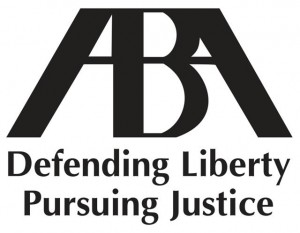 Rule 1.5(e) permits lawyers who are not in the same law firm to divide legal fees, subject to certain requirements. See ABA Model Rule of Prof’l Conduct R. 1.5(e); La. Rules of Prof’l Conduct R. 1.5(e). More particularly, Louisiana lawyers may share fees if: “(1) the client agrees in writing to the representation by all of the lawyers involved, and is advised in writing as to the share of the fee that each lawyer will receive; (2) the total fee is reasonable; and (3) each lawyer renders meaningful legal services for the client in the matter.” See La. Rules of Prof’l Conduct R. 1.5(e). Must a lawyer who receives a fee that will be shared with another lawyer place that fee in trust upon receipt?
Rule 1.5(e) permits lawyers who are not in the same law firm to divide legal fees, subject to certain requirements. See ABA Model Rule of Prof’l Conduct R. 1.5(e); La. Rules of Prof’l Conduct R. 1.5(e). More particularly, Louisiana lawyers may share fees if: “(1) the client agrees in writing to the representation by all of the lawyers involved, and is advised in writing as to the share of the fee that each lawyer will receive; (2) the total fee is reasonable; and (3) each lawyer renders meaningful legal services for the client in the matter.” See La. Rules of Prof’l Conduct R. 1.5(e). Must a lawyer who receives a fee that will be shared with another lawyer place that fee in trust upon receipt?
Yes, according to the latest formal opinion from the American Bar Association Standing Committee on Ethics and Professional Responsibility. See ABA Formal Op. 475 (Dec. 7, 2016). Rule 1.15 requires a lawyer to place into trust any property in which a client or any “third person” has an interest. Formal Opinion 475 makes it clear that a lawyer with an interest in a to-be-shared fee is such a “third person” under Rule 1.15:
When one lawyer receives an earned fee that is subject to such an arrangement and both lawyers have an interest in that earned fee, Model Rules 1.15(a) and 1.15(d) require that the receiving lawyer hold the funds in an account separate from the lawyer’s own property, appropriately safeguard the funds, promptly notify the other lawyer who holds an interest in the fee of receipt of the funds, promptly deliver to the other lawyer the agreed upon portion of the fee, and, if requested by the other lawyer, provide a full accounting.
Id. at 3.
The Louisiana Rules likewise require a lawyer to place into trust any funds in which a “third person” has an interest. The Louisiana Rules, however, define more precisely what funds are subject to this requirement:
For purposes of this rule, the third person’s interest shall be one of which the lawyer has actual knowledge, and shall be limited to a statutory lien or privilege, a final judgment addressing disposition of those funds or property, or a written agreement by the client or the lawyer on behalf of the client guaranteeing payment out of those funds or property.
See La. Rules of Prof’l Conduct R. 1.15(d). Given that any Louisiana lawyer who expects to share a legal fee must have a written engagement agreement with the jointly-represented client, Louisiana Rule 1.15(d) likewise requires to-be-shared legal fees to be placed into the trust account of the recipient lawyer.
